Sagan decries Terpstra's Gent-Wevelgem tactics as 'a very cheap game'
Boonen: 'It's up to Sagan to react'
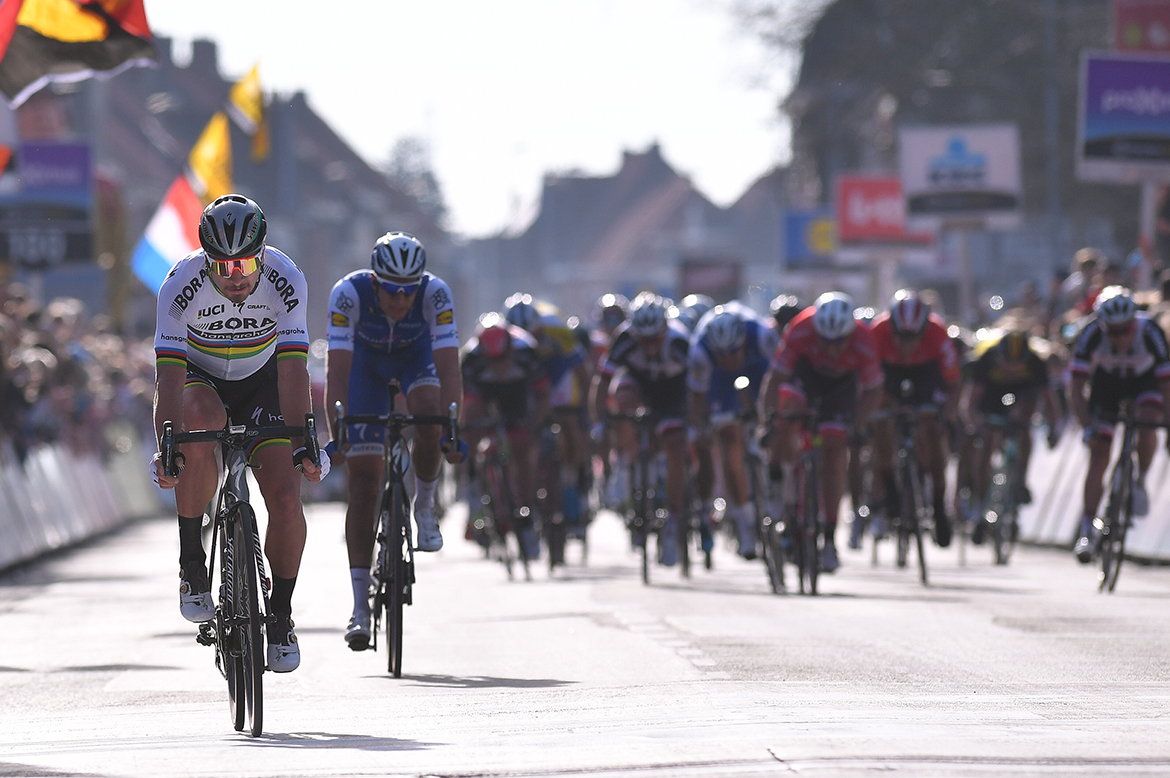
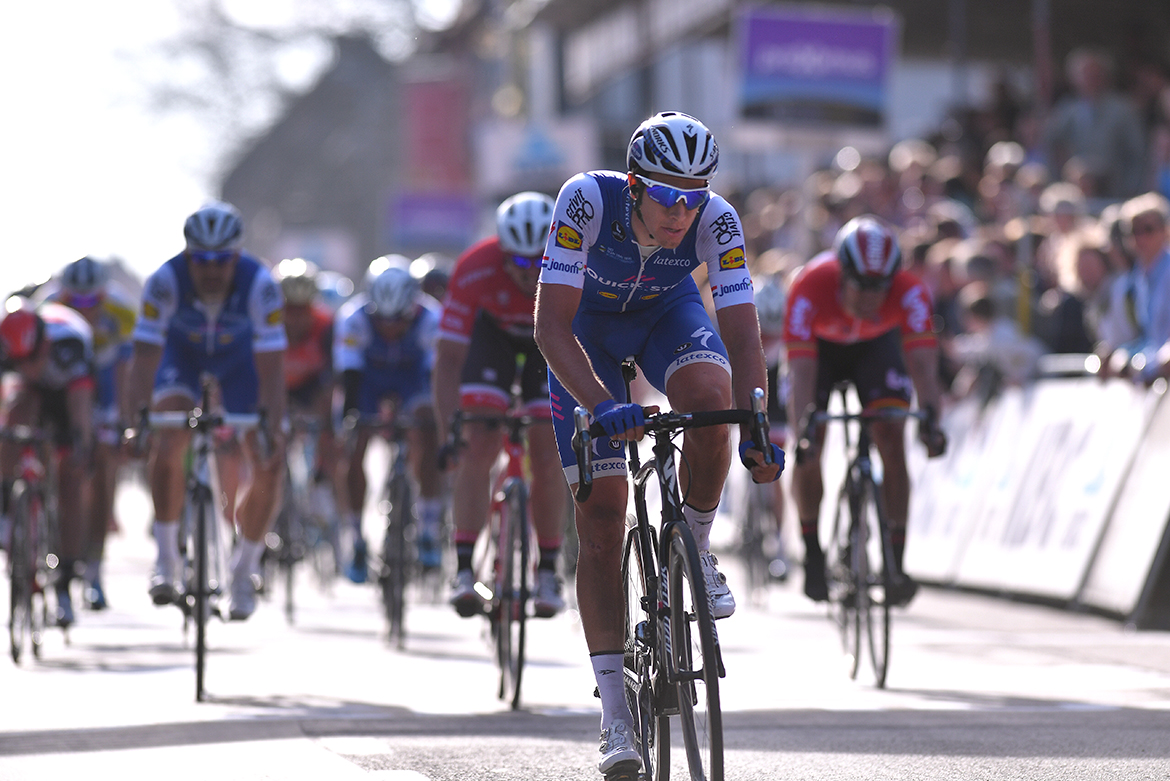
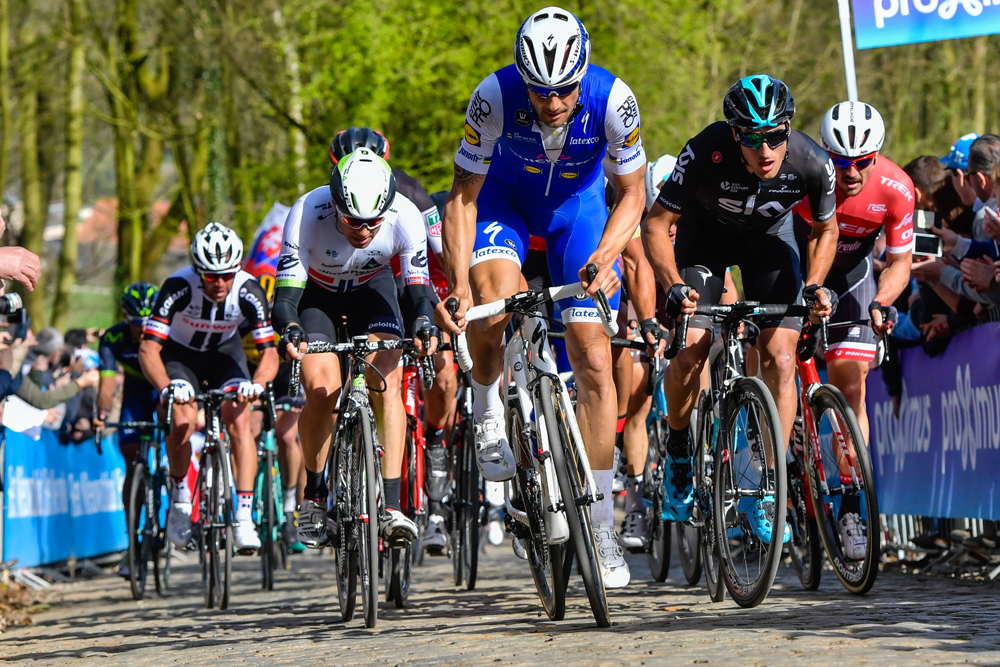
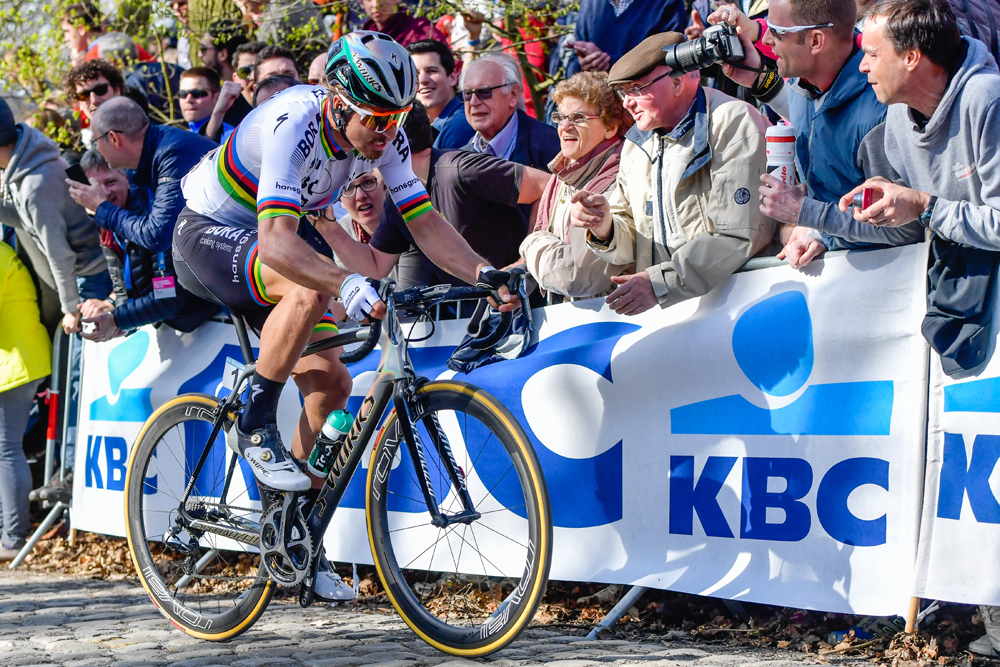
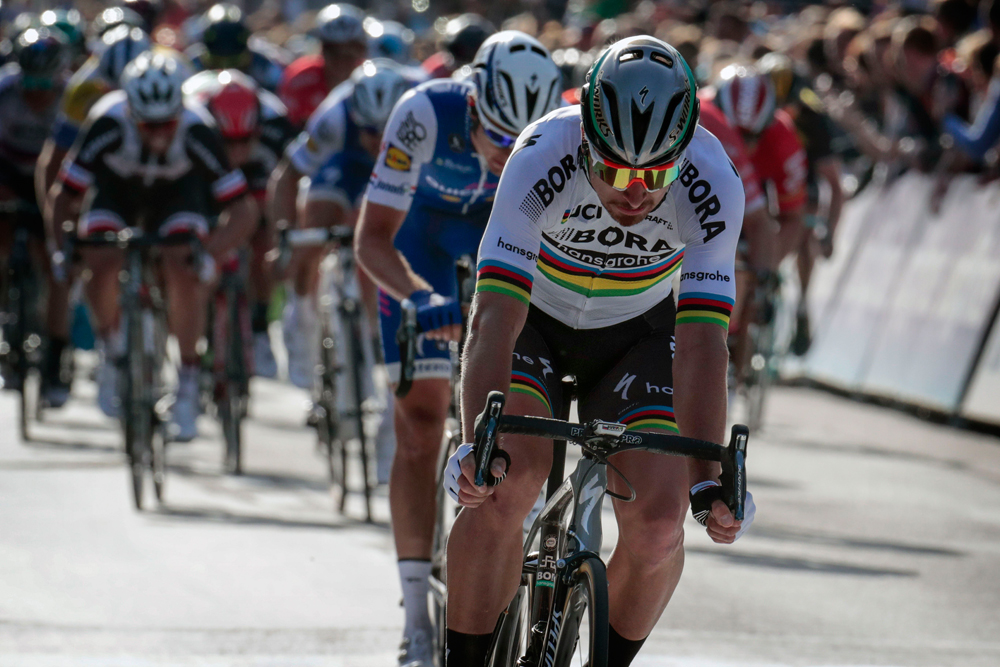
Peter Sagan (Bora-Hansgrohe) should probably be getting used to it by now. When a rider flaunts his strength as regularly and as obviously as the world champion has done over the past two years, he can hardly expect to find too many allies of circumstance in the closing kilometres of a major race.
Part of the decisive five-man break in the finale of Gent-Wevelgem that bludgeoned its way clear coming out of Ieper, Sagan couldn't hide his irritation that one of their number, Niki Terpstra (Quick-Step Floors), was not performing his share of the heavy lifting. Sagan and Terpstra battled keenly for the title at last year's Eneco Tour; perhaps this was round two.
When Greg Van Avermaet (BMC) and Jens Keukeleire (Orica-Scott) forced the pace with 15 kilometres remaining, Sagan moved aside in a bid to force Terpstra to close the gap. Terpstra called the world champion's bluff, and Van Avermaet and Keukeleire disappeared up the road.
Shortly afterwards, Sagan accelerated hard down the right-hand gutter in an attempt to bridge back up to the leaders solo, but Terpstra promptly shut him down and his effort fizzled out. Stalemate. Accompanied by the impressive Soren Kragh Andersen (Team Sunweb), they were weighed down by their mutual distrust all the way to the finish, eventually coming home six seconds down on the winner Van Avermaet but only a whisker ahead of the closing peloton.
Sagan won the sprint for third place by the proverbial street, not that it seemed to be much consolation. His disappointment was obvious in the Sporza tent by the finish line, where he sat adjusting and readjusting the bill of his baseball cap ahead of the podium ceremony. The Slovak is often a glib interviewee in such circumstances, but he was rather more frank on this occasion.
"I don't know what Terpstra wanted to do, because he attacked to go in the breakaway and after he doesn't want to work. This is just one example of how you can lose the race against me," Sagan said, punctuating his comments with a joyless laugh. "What can I do? I am not his teammate. I'm going to work for what, for Terpstra to beat me in the sprint? I could decide today who can win."
In decreeing that Terpstra would not win Gent-Wevelgem, however, Sagan also sacrificed his own chances of a third victory in the race to go with his triumphs in 2013 and 2016. Sagan was the quickest to respond to Van Avermaet's fierce acceleration on the Kemmelberg with 35 kilometres to go, an attack that ultimately forced the decisive selection.
The latest race content, interviews, features, reviews and expert buying guides, direct to your inbox!
From a physical standpoint, there again seemed to be precious little to choose between Van Avermaet and Sagan, the two outstanding favourites for next week's Tour of Flanders. The balance sheet of the season to date, however, shows that Van Avermaet now has three Classics to his name – Omloop Het Nieuwsblad, E3 Harelbeke and Gent-Wevelgem – while Sagan's one-day haul has been limited, thus far, to Kuurne-Brussel-Kuurne. The Ronde awaits.
"It's not disappointment, I am more motivated," Sagan said. "If you are winning always maybe you lose motivation. Now I am motivated to take some victories. But still, you know, against everybody, it's not sport. This is just, I don't know, a very cheap game."
Outside the Quick-Step bus, Tom Boonen, who placed 6th on the day, gave short shrift to Sagan's complaints about how Terpstra had conducted himself. Terpstra was never likely to beat Sagan in a sprint, after all, and Quick-Step had both Boonen and Fernando Gaviria in the reduced peloton behind.
"Nikki didn't fail: Sagan failed. If you're Sagan and you're in such a situation, you always have to react," Boonen said. "He's the only man who lost the race today. Nikki didn't lose the race. He was there, trying to win the race. It's up to Sagan to react at that moment, when you're the strongest and the world champion."
Sagan's lament on the Menenstraat on Sunday afternoon mirrored the complaints of Fabian Cancellara in the spring of 2011, a time when his prodigious feats of strength meant that few riders were willing to provide him with more than the most cursory turns on the front. The Swiss rider won the strongest man contests at that year's Tour of Flanders and Paris-Roubaix, but the spoils fell to Nick Nuyens and Johan Vansummeren, respectively.
At various points in his own career, Boonen found himself subject to equally heavy marking, though he tended to bear the burden a little more stoically. Perhaps it helped that he was usually surrounded by the strongest team. No matter, he could empathise with the scrutiny currently experienced by Sagan, as both world champion and perpetual pre-race favourite.
"I think he's fed up with it. He's complaining a lot and that's normal," Boonen said. "It's the busiest time of his life, and at a certain moment, you're fed up with that. He's not more nervous. He gets angry once in a while. He's hesitating and that's crucial at those moments in the race. You shouldn't doubt. You always have to do what's on your mind. That's the best thing to do. But he's still super strong: Sagan and Greg are a level above the rest."

Barry Ryan was Head of Features at Cyclingnews. He has covered professional cycling since 2010, reporting from the Tour de France, Giro d’Italia and events from Argentina to Japan. His writing has appeared in The Independent, Procycling and Cycling Plus. He is the author of The Ascent: Sean Kelly, Stephen Roche and the Rise of Irish Cycling’s Golden Generation, published by Gill Books.